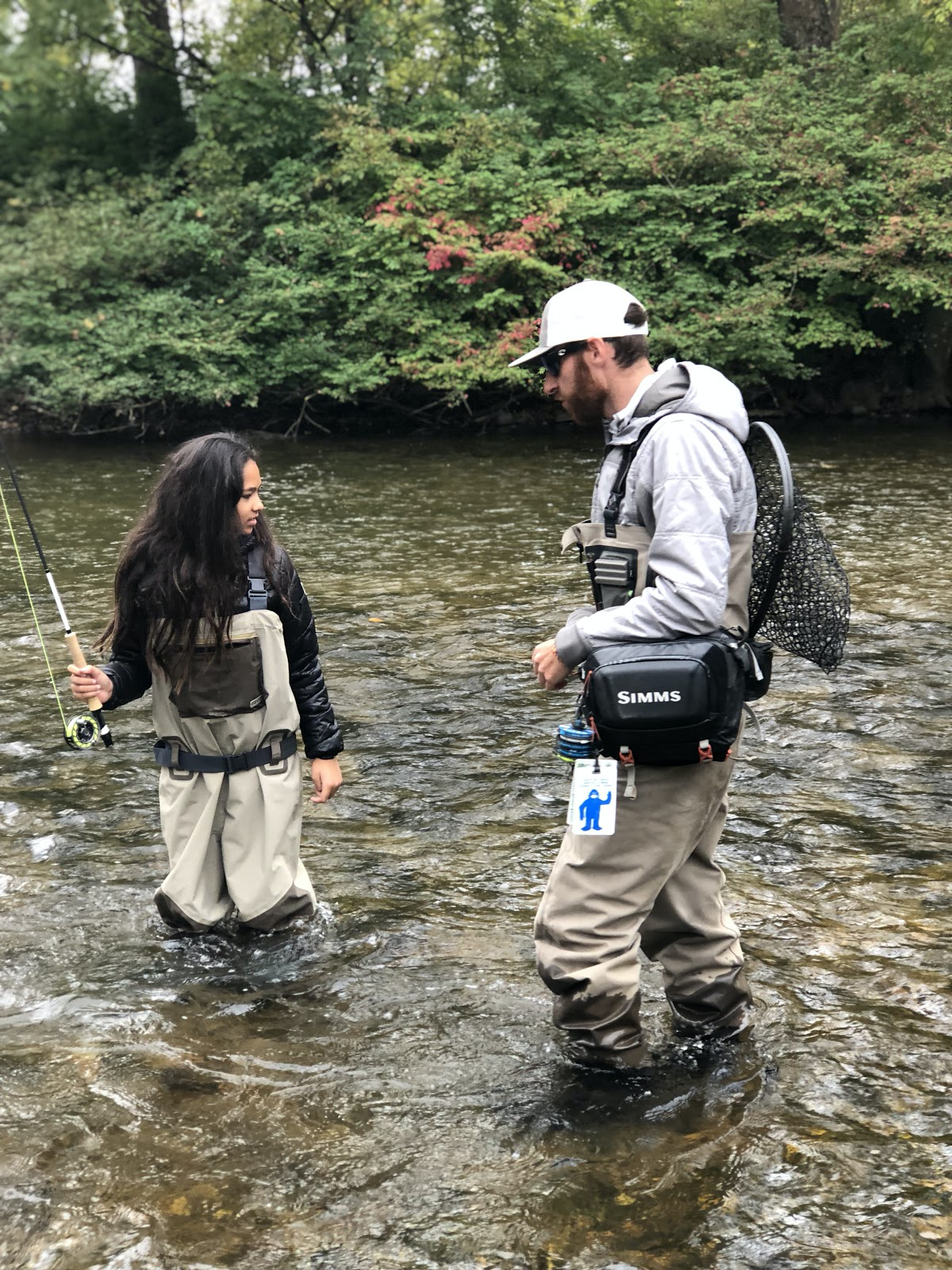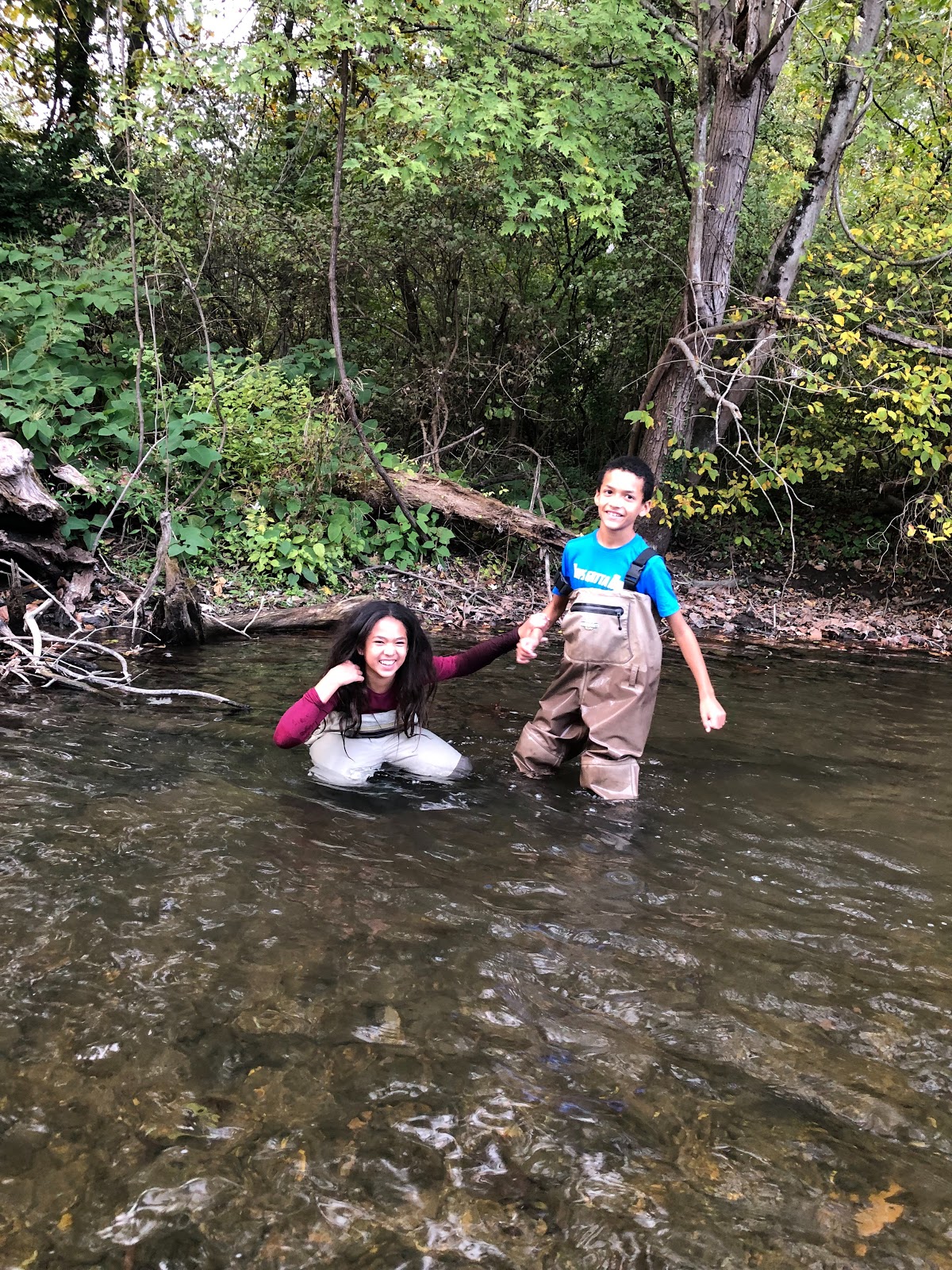As fly-fishing parents, we share a common dream that our children will follow along at a young age, immersed in the experiences of our family's fishing expeditions. Traveling to our favorite rivers and lakes on a weekly basis will all become pleasant memories for them as we introduce them to our favorite sport and the art of fly fishing. When we were growing up, spending time outdoors didn’t have to compete with spending time tele-learning on the internet, playing video games, and Zoom calls. With technology and screens being our biggest competitor for getting kids outside, we came up with a guide on how to teach your children to fly fish as early as possible.
Water safety is of paramount importance, so make sure everyone in the crew has access to an appropriately-sized personal flotation device (PFD).
From an early age immerse them in the natural world. You could take outings to a local park, pond, lake, or stream to do some short hikes and rock chucking. Remember to take time for snack breaks.
Flip over those rocks to look at the larvae that fish eat, catch some crawfish -- all the while imparting the basics of respect for their natural world into them. We are talking about the next generation of advocates for our natural resources here that are going to have to carry the mantle after we are gone. It's important to educate them on their role as responsible stewards of our lands.
For parents with children two and under, a backpack child carrier is highly recommended. Taking them fishing while your son or daughter is with you at this age is such a terrific bonding experience.
 photo by - Angelica Talan
photo by - Angelica Talan
If you have access to one, take them out in your drift boat. Remembering all the while both sun and water safety.
It is ok to allow your little ones to touch the fish. Seeing our children touch fish for the first time is so fun. Not all kids will be excited about it, but getting them comfortable, teaching proper fish handling skills, and building their excitement is the goal.
Take them bait fishing and turn it into a day outing with a picnic lunch. Make it fun and encourage them to dunk some worms, or even tie a nymph pattern such as a pheasant tail or soft hackle below any old bobber using a conventional rod and reel setup. A Tenkara-style rod also makes an excellent kid-friendly rod, since there is very little that can go wrong.
Start them out by fishing for bass, panfish, catfish, salmon, stocked trout, or whatever will give them the most chance for success. This will build their confidence. Relish in the opportunity to be a kooky cheerleader for them. Dancing a happy dance is acceptable behavior in fishing - no matter one's age.

Thread some brightly colored yarn on the tip of a fly rod, or pick up a practice rod to work on their fly casting in the house or yard.
 photo by - Steve Avril
photo by - Steve Avril
Engage in the practice sessions by making them play-oriented in nature. I have fond memories as a young boy of my dad playing the role of "the trout" crouched on the floor of his den and me casting to him for practice. If I was able to make a good cast to him, he would grab the end of the yarn we used as the line on a makeshift practice rod, and I would fight him like a fish that ate my presentation. I am continuing the tradition with my own toddler-aged son and looking forward to a time when he can join me on the water as an angler.
 photo by - Angelica Talan
photo by - Angelica Talan
Hit the water with the fly rods and hunt down some panfish, bass, trout, perch, etc. I like the idea of panfish and poppers. They are a readily accessible species, and the action is extremely visually-oriented fishing. It will allow young children to develop their sense of timing the strike as the fish eats that popper on the surface.
 photo by - Angelica Talan
photo by - Angelica Talan
Remember to take breaks when they want. Short durations of fishing should be taken into consideration at this point. By keeping it brief you can possibly avoid them getting burned out and cranky. Also, did I mention snacks? I can’t express the importance of snacks enough. For both kids, and adults for that matter.
 photo by - Steve Avril
photo by - Steve Avril
Growing up fishing with their parents, children are likely to develop an appreciation of the outdoors and a passion for being on the water with you. Take them fishing as you would any other peer, and share in their joy and wonder for the places where fishing takes you. Encouraging children to have a love for the outdoors is principal for their development. After all, we need to look to the next generation to carry on our established outdoor traditions.
